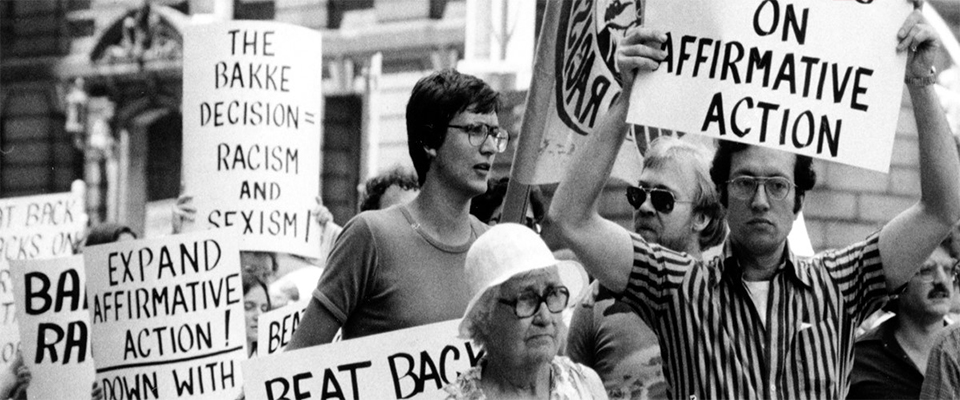
And who are these “leaders”? The future, Powell implied, perhaps without realizing it, depends on white students’ exposure to the supposedly unique ideas and mores that qualified minorities should offer. In its reasoning, the Court suggested that the point of affirmative action was to foster a more varied classroom environment for “leaders,” thus shifting the intended beneficiary of the program from the historically discriminated against to the nation that had discriminated against them. Powell, quoting an unrelated case, emphasized that the “‘nation’s future depends upon leaders trained through wide exposure’ to the ideas and mores of students as diverse as this nation of many peoples.” He argued, moreover, that attaining a diverse student body was the only real interest asserted by the university that survived legal scrutiny. And in order to treat some persons equally, we must treat them differently.”īut in his majority opinion, Justice Lewis Powell ruled that while UC could use race as a factor in admissions, quotas were impermissible. As Justice Harry Blackmun wrote, “In order to get beyond racism, we must first take account of race.

Allan Bakke, a white male, had been rejected two years in a row by the University of California at Davis medical school, which had reserved 16 out of 100 places for qualified minorities.įour justices defended the use of racial quotas to remedy the burdens placed on minorities by past racial injustice. That precedent was the 1978 case Regents of the University of California v. The Court did, however, rely on precedent to accept the argument that diversity can constitute a compelling state interest. The majority opinion held that the University of Michigan’s use of racial preferences in undergraduate admissions violated both the Equal Protection Clause of the Fourteenth Amendment and Title VI of the Civil Rights Act of 1964 (President Lyndon Johnson’s legislation that originally advanced affirmative action). Their complaint eventually reached the Supreme Court in Gratz v. Jennifer Gratz and Patrick Hamacher, both white residents of Michigan, claimed to have been harmed by this system in their applications to the university. The university gave underrepresented ethnic groups an automatic 20 points on this scale. They were presumably reading stories about how the University of Michigan, in 1998, began using a 150-point scale to rank applicants, with 100 points needed to guarantee admission. I remember hearing a lot about the evils of affirmative action as a high-school student in the 1990s, and more than a few of my classmates figured I would all but automatically gain admission to every college I applied to. Affirmative action should be implemented as part of a broader reparations program the point should be justice, not “diversity.”Ĭaitlin Flanagan: The dueling deities of Harvard I’d earned my way into Bronx Science, and I worried that anyone who didn’t understand how the system worked would assume I’d been given a leg up.Īs an adult, I don’t oppose affirmative action-quite the contrary-but I support only certain justifications for it. As I grew up and succeeded in this cut-throat, supposedly merit-based space, part of me feared any association with affirmative-action programs. These schools are required by state law to admit students based solely on the uniform Specialized High Schools Admissions Test. I’ll never forget the terrifying and confusing feeling of going from a part of the classroom to a classroom accessory.īronx Science is one of the three original specialized high schools run by the New York City Department of Education. But suddenly, as one of two black students in the class, I was expected to enhance the learning experiences of my mostly white counterparts.

Truth be told, I didn’t have an opinion, at least not a sophisticated, nuanced one, because I was a teenager reading Twain for the first time.

I was a 16-year-old student at the Bronx High School of Science, scribbling Concrete Blonde lyrics at my desk, when my English teacher abruptly called on me, without a heads-up or any preparation, to explain my thoughts on the word nigger in Mark Twain’s Adventures of Huckleberry Finn.


 0 kommentar(er)
0 kommentar(er)
